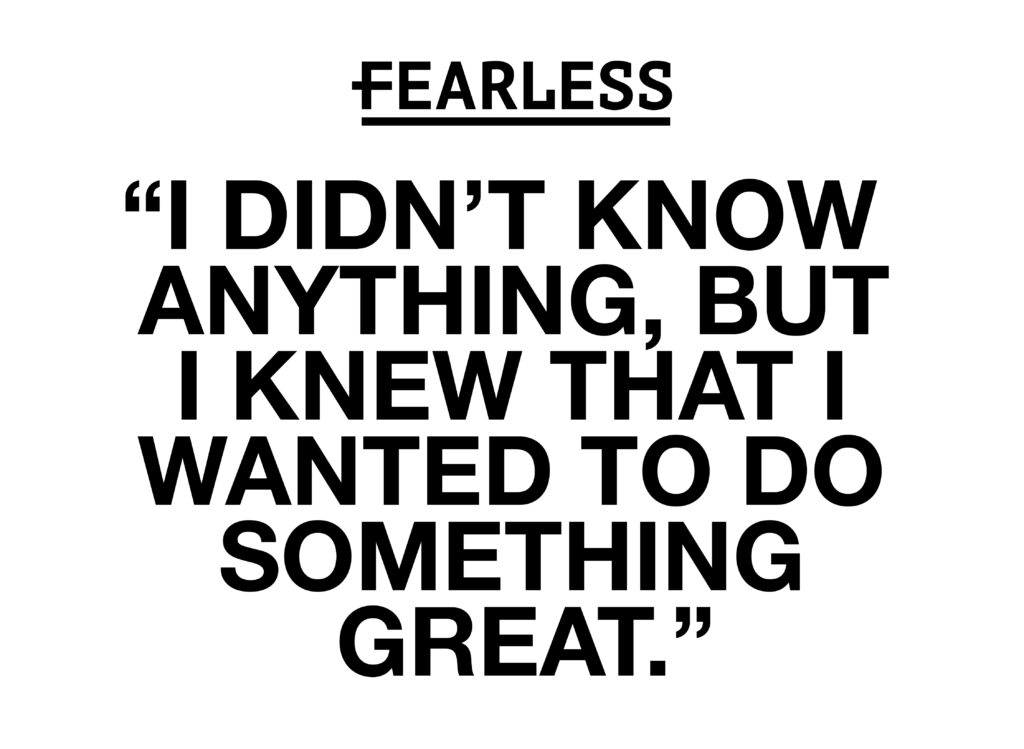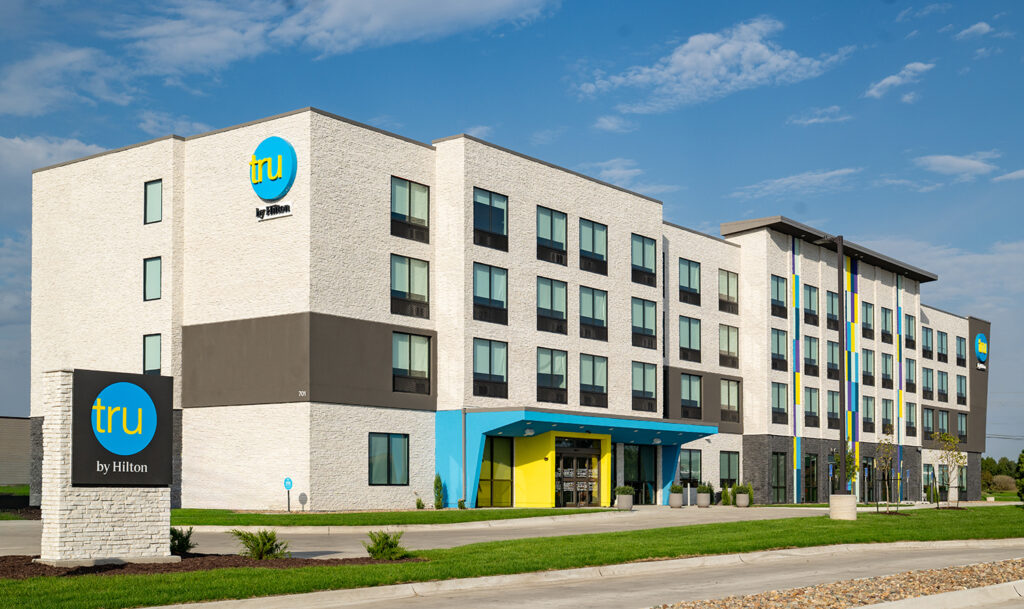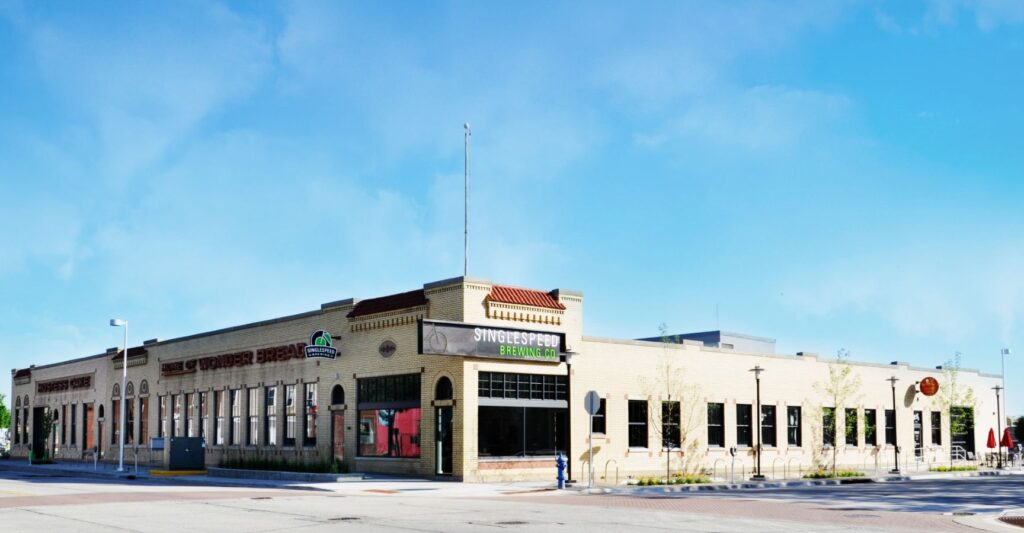Entrepreneurs: Todd Millang
Senior vice president, CBRE|Hubbell Commercial

KENT DARR Aug 28, 2015 | 11:00 am
7 min read time
1,578 wordsBusiness Record Insider, Real Estate and DevelopmentTodd Millang took a fairly simple path to entrepreneurship.
“When I was growing up, it was anything to make a dollar,” Millang said.
By profession, he is a senior vice president at CBRE|Hubbell Commercial. He brings a unique twist to that position and has taken a turn or two around the restaurant and bar business. A mix of pluck and circumstances have made him a success at both.
He might be best known to some as a majority owner of both Johnny’s Hall of Fame and RoCA (Restaurant on Court Avenue), both occupying spots along the main drag of downtown Des Moines’ entertainment district.
From college on, he was attracted to the food and beverage business. The same could be said of his attraction to commercial real estate, where he has built a client list that includes some of the top names in Greater Des Moines business.
Millang’s first venture into the food business was the result of a trip he made to Iowa City while attending the University of Northern Iowa. Over the course of a weekend, he bought several gyros and decided that the sandwich would go over well back on the UNI campus.
“I thought, hey, we can do this,” he said.
Setting up shop might have been easier than you would expect.
Millang’s dad had converted a barrel to an outdoor grill. Father and son rigged it to a trailer. Next on board were some refrigerators and freezers. The gyro stand opened on UNI’s hilltop area, with the business end operating out of a house Millang shared with 10 other people.
“It was one of those scenarios where I rarely ever worked. I got everything ready, I ordered everything, I did all the books. I hired buddies; some I’d pay in beer, some in money,” Millang said.
A measure of success was that he sold the operation to UNI’s finance club when he graduated.
Millang’s fascination with the real estate business also started at UNI, where he took a class that a friend pitched as an “easy A.” The professor also was a commercial real estate broker.
“I was very attracted to his personality. When he told us what he did as a broker, that sounded exciting to me,” Millang said.
Though he was not a student in UNI’s emerging real estate program at the time, Millang decided to show up for a meeting of its real estate club. Elections were underway and Millang was voted in as vice president.
“The guy running for president needed a vice president, so there I was,” he said.
Part of the intrigue with commercial real estate was that brokers pretty much have to make it on their own. They do not earn a wage or a salary. When they complete a deal, they get paid.
Millang said that out of college he could have worked for companies such as Principal Real Estate Investors. Taking that route seemed too safe.
“Those are great jobs. You get a salary and there is a game plan to the rest of your career,” he said.
Being a commercial real estate broker “is like running your own business,” Millang said.
“You have to market yourself. You have to understand the financials. You have to be creative in your approach. You have to be able to have people skills and communications skills,” he said. “It’s that whole gamut where you’re running your own business inside that brokerage. You have to find the right home.
“At the end of the day, you only make money if you get a deal done. It’s about accomplishing the end goal. I’ve been doing that for 18 years now.”
After graduating from college in 1997, Millang went to work for what at the time was known CB Commercial, which had just formed a relationship with Hubbell Realty Co. He was hired by the late Feisal Sayeed, who just happened to be on a trip to Africa for the first couple of weeks that Millang worked for the brokerage.
“When he came back, I was just flailing,” Millang said. “So he said to make him a list of all the business people I knew. One was Dennis Snyder (a founder of Snyder & Associates Inc.), and an uncle or second uncle who worked for somebody. It was a short list. I hadn’t spent much time in Des Moines.”
Millang went about putting together a list. That worked out. His clients include Kum & Go LC and Wells Fargo & Co. He helped Kyle Krause compile properties in the Western Gateway that include the location of Kum & Go’s planned corporate headquarters.
“A lot of the early work I did for Kum & Go was with Bill Krause. Now Kyle Krause rarely settles for anything other than the best, and I consider it a feather in my hat that I’ve had a relationship with the Krause family for 18 years,” Millang said.
Millang is planning for the future, establishing what he and others have described as a brokerage within the larger structure of CBRE|Hubbell Commercial by bringing in a team that works together building a business that will succeed him.
The decision to create his own team and build something with a value that would live beyond the next commission came after a conversation with another entrepreneur, Craig Sommerfeld, founder of Kreg Enterprises Inc. in Huxley. They chatted about revenues and were fairly evenly matched. But when it came to the value of their businesses, well, Kreg had value.
“The value of my company was zero,” Millang said.
He decided to build a company inside a company.
“I have great resources at Hubbell, and I’m surrounded by all kinds of knowledge,” he said. “I can operate a company inside a company and have the best of both worlds.”
Millang also invests in real estate projects, providing those projects don’t create a conflict for CBRE|Hubbell Commercial or clash with something that a client is interested in.
“The great thing that investing has done for the brokerage is that it gives me that owner’s mentality,” he said.
In a business where the client is boss, Millang makes certain that he doesn’t step between his interest in buying something and the client’s.
“The last thing I need is to have a conflict blow up in my face,” he said.
Millang said Kyle Gamble, managing director of CBRE|Hubbell Commercial, provides a sounding board.
“He has helped my business as much as anybody,” Millang said.
His role as a commercial real estate broker also has helped his development as a restaurateur.
He opened a bar in Ames after helping its owner find a new location.
He bought a majority ownership stake in Johnny’s Hall of Fame after Hubbell Realty first asked whether he wanted to lease the operation.
Millang had learned enough about the food and bar business by that time to know that it was prone to pitfalls. If he had an ownership interest in the business and the building where it was located, he would have property that could be leased in the event the restaurant failed.
His majority ownership in RoCA resulted from having helped the building’s owners find a location for their first Buzzard Billy’s.
The shared plates and craft cocktails restaurant is a reflection of its owner. It also was one of his most fretful startups.
“I knew a lot more when I was opening RoCA than when I opened Johnny’s or some of the other places. I was putting a lot of pressure on myself. If this didn’t work, then it was me who couldn’t figure it out. It was a tough six months in my life,” Millang said.
Things have worked out. Earlier this year, RoCA was named a Top 100 Hot Spot Restaurant in America by an industry trade publication.
Millang is an entrepreneur who recognizes that he might get too deep in the weeds — worrying over every detail from menus (though he says he couldn’t concoct a shared dish or craft cocktail) to the type of wine glasses used at RoCA, for example. He also knows when to rely on others for advice.
“I am not a very good manager of people. I love it when a client or customer or employee gives me constructive criticism. I’m always trying to be more efficient, so I love finding out where I can improve. But I’ve never been good at being the boss who can deliver the message that you’re not doing this or that right. I would always say that I have not been a good manager of people, but I’ve always surrounded myself with good people and make sure that that they are involved and rewarded appropriately,” he said.
Q&A
Do you have one piece of advice for other entrepreneurs?
Make the time to look at your business from 30,000 feet and try not to get caught in the weeds. Figure out your game plan and remember to take the time to stop and look at how you are doing, make the adjustments you need and get back to doing it right.
What’s your next goal?
Reduce the number of jobs I have; continue to focus on what I enjoy working on and divest of what I don’t.
What was your first paying job?
Mowing lawns. I had to put a brick on the seat as I didn’t weigh enough
and had to put a block on the pedals because I couldn’t reach them.











